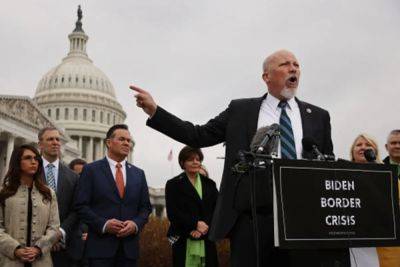Supreme Court liberal justices warn against choking the power of federal agencies
At first glance, it seemed like a curious decision by the Supreme Court to agree to hear arguments on cases involving the financial responsibilities of herring fishing boats.
The cases concerned several fishing companies disgruntled about a 2020 rule, set by the National Marine Fisheries Service, which forced them to pay for government-mandated observers on their boats to monitor for overfishing.
But on closer examination, Loper Bright Enterprises v Raimondo and Relentless Inc v Department of Commerce carry much more consequential weight.
The cases, which are being heard together, could overturn a 40-year-old precedent known as the Chevron Deference – which gives federal agencies the power to set regulations on a wide range of issues.
After more than two hours of oral arguments on Wednesday, it seemed that the majority of conservative justices are poised to do exactly that, or at the very least limit Chevron: An act that could upend how health care, energy, pollution and more are regulated, turning that power over to Congress and the courts instead.
The Chevron Deference, which spawned from the 1984 landmark case Chevron v Natural Resources Inc, is one of the most cited cases in US law.
The case revolved around interpretation of the word “source” in the 1963 Clean Air Act. The act did not define what a “source” of air pollution was, instead leaving the government to interpret that for themselves. But National Resources Inc, an environmental group, stepped in and argued that the government’s interpretation contradicted the purpose of the legislation.
Ultimately, the Supreme Court decided that when a lower court is faced with ambiguous wording, they could defer to an agency’s reasonable interpretation using a two-part







